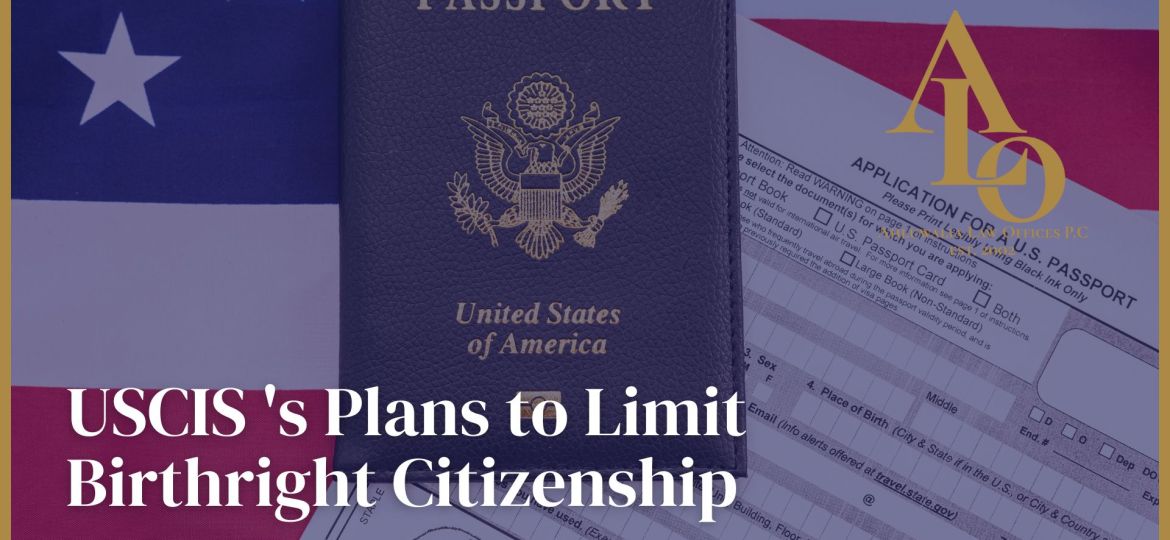
On January 20, 2025, President Trump signed Executive Order 14160, titled Protecting the Meaning and Value of American Citizenship. This directive seeks to redefine who is entitled to U.S. birthright citizenship under the 14th Amendment. And directly challenging long-standing legal precedent regarding jus soli (citizenship by birth on U.S. soil).
Although implementation is currently paused due to a preliminary injunction issued in Barbara v. Trump, USCIS has released an internal memorandum. It details how the agency plans to implement the Executive Order should the injunction be lifted. Here’s what foreign nationals, visa holders, and investors in the U.S. need to know.
What Does EO 14160 Propose?
The Executive Order states that children born in the United States will not be considered U.S. citizens at birth if:
- Their mother was unlawfully present in the U.S. and the father was neither a U.S. citizen nor a lawful permanent resident (LPR) at the time of the child’s birth.
- Their mother was lawfully but temporarily present (e.g., on a B1/B2, F1, or H-1B visa) and the father was not a U.S. citizen or LPR at the time of birth.
In both scenarios, the child would not be deemed “subject to the jurisdiction” of the United States and therefore would not be granted automatic citizenship.
Understanding the Legal Definitions
“Unlawfully Present”
USCIS plans to interpret “unlawfully present” in line with INA § 212(a)(9)(B)(ii), which refers to individuals present in the U.S. after their authorized period of stay has expired or who entered without inspection. Importantly, not all persons without lawful immigration status are deemed “unlawfully present.”
For example, individuals paroled into the U.S., or those with pending asylum applications, may not accrue unlawful presence under specific circumstances.
“Lawful but Temporary Presence”
This undefined phrase will now include individuals lawfully in the U.S. under nonimmigrant statuses or temporary protections that do not grant permanent residency. These categories include:
- Nonimmigrant visa holders (B1/B2, F1, H-1B, etc.)
- TPS recipients
- Visa Waiver Program entrants
- Parolees
- Deferred Action and DED recipients
- Withholding of removal beneficiaries
Excluded from this category (i.e., still eligible for birthright citizenship) are:
- Asylees
- Refugees
- Lawful permanent residents
- U.S. nationals not born as citizens
Impact on Children Born in the U.S.
Should the Executive Order take effect, children born in the United States to mothers in temporary lawful status (and fathers who are not U.S. citizens or LPRs) would no longer receive citizenship at birth. Instead, the government proposes:
- Allowing such children to register for the immigration status held by their parent.
- Temporarily deferring immigration enforcement against these children pending rulemaking.
This approach mirrors current regulations applicable to children of foreign diplomats, who are also not considered “subject to the jurisdiction” of the United States for the purposes of the 14th Amendment.
Legal Uncertainty and Next Steps
While the preliminary injunction halts EO 14160 from being enforced at this time, the USCIS Implementation Plan indicates readiness to proceed if judicial clearance is granted. Immigrant families, especially expecting parents on temporary visas or without permanent status, should prepare for the possibility of this fundamental shift in citizenship law.
If you or your family could be impacted by the potential implementation of Executive Order 14160, or if you’re planning a birth in the U.S. while on a nonimmigrant visa, our team at Ahluwalia Law Offices is here to assist you.

